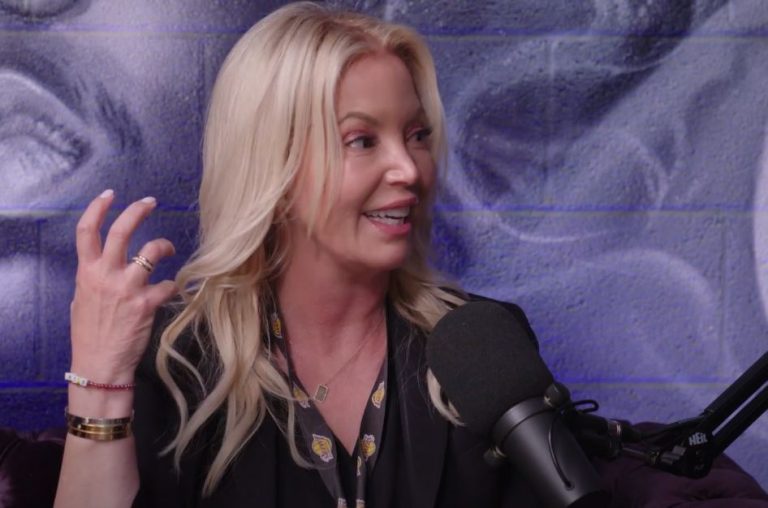The startling $10 billion price tag associated with the Los Angeles Lakers’ sale has dominated the financial press in recent weeks. This was more than just a headline for the Buss family; it was the result of almost fifty years of strategic ownership, measured risk-taking, and an unwavering passion for the game. What started in 1979 when Dr. Jerry Buss paid a meager $67.5 million to acquire the franchise has now evolved into a record-breaking exit that drastically alters each Buss sibling’s net worth.
Before the sale, the Buss family’s trust owned a dominant 66% of the Lakers thanks to a legacy based on championship banners, legendary players, and a worldwide fan base. In June 2025, Mark Walter, who already owned 27% of the team through an earlier acquisition from Phil Anschutz, purchased an additional 48% from the Buss family, increasing his overall ownership to 75%. The total net worth of the Buss family jumped to an estimated $10 billion as a result of this valuation, which was significantly higher than the Boston Celtics’ $6.1 billion sale earlier this year. According to reports, the six Buss siblings each received $1.025 billion in cash, but they also kept minority stakes worth about $300 million apiece.
Buss Family Net Worth — Bio Table
| Name | Jeanie Buss |
|---|---|
| Date of Birth | September 26, 1961 |
| Age | 63 (as of 2025) |
| Birthplace | Santa Monica, California |
| Role | Lakers Governor, Sports Executive |
| Family Net Worth | Estimated at $10 Billion (Post-Lakers Sale) |
| Personal Net Worth | ~$1 Billion |
| Career Milestones | Lakers Presidency, WOW Co-owner, Emmy Winner |
| Major Asset Sold | 66% Stake in Los Angeles Lakers |
| Buyer | Mark Walter (TWG Global, Dodgers Owner) |
Interestingly, Jeanie Buss is still in charge. She negotiated a provision guaranteeing her continued position as governor and chief decision-maker, even though she reduced her equity stake. Lakers legend Magic Johnson, who referred to Walter as “the best choice” and underlined that Jeanie’s leadership was essential to the Lakers’ identity, was among those who viewed this continuity as crucial.
Owning a sports team has traditionally been inherited and is rarely disrupted by sales unless there is an emergency. Through strategy rather than desperation, the Buss family broke with tradition. They have maintained their influence and made money off of legacy by giving the majority of the company to an ambitious and resource-rich investor like Walter while keeping a foothold and leadership position.
The story of Jeanie Buss is especially representative of perseverance meeting vision. At the age of 19, she joined the family business as manager of the LA Strings tennis team after graduating from USC with a business degree. Later, she increased her impact by working on projects like Roller Hockey International and the Great Western Forum. Her role became more and more important over time. A power battle between brothers Johnny and Jim almost tore the family apart after Jerry Buss passed away in 2013, but Jeanie won and took complete control of basketball operations in 2017.
Jeanie solidified her status as the first female controlling owner to win a championship by 2020, having guided the Lakers to an NBA championship. She was executive producer of “Legacy: The True Story of the LA Lakers,” which took home a 2023 Sports Emmy, demonstrating her unique approach to media endeavors. She is a transformational leader in addition to being a figurehead because of her dedication to strategy and narrative.
Jeanie had relationships outside of the hardwood. She pushed the limits of women’s sports entertainment through her participation in Women of Wrestling (WOW), which she co-founded in 2017. WOW obtained a Paramount syndication under her leadership, and it currently airs weekly in more than 200 U.S. markets. Her initiatives reflect broader changes in the entertainment and sports industries, where female representation and leadership are not only accepted but also frequently incredibly successful at fostering engagement.
But it’s impossible to overestimate the emotional toll of selling the Lakers. From the age of 17, Jeanie lived with her father, studied his playbook, and sat next to NBA greats like Kobe Bryant and Magic Johnson. In 1995, she posed for Playboy to show her independence in a male-dominated field, not to garner attention. In addition to signaling a change from a family-run dynasty to a contemporary corporate structure with outside majority ownership, the sale may represent a financial high point.
This is the end of an era for Los Angeles, a city known for its stories. But it’s a pivot, not a retreat. Jeanie has made sure that the Buss name will continue to be respected throughout the NBA by selling well, maintaining her influence, and staying visible on the NBA Board of Governors.
In contrast, prominent athletes like Wyc Grousbeck of the Boston Celtics and Mark Cuban of the Dallas Mavericks have also left recently, supporting a larger trend in which legacy teams are becoming owned by diversified holding companies and mega-cap investors. In addition to the Dodgers and Lakers, Mark Walter owns shares in Chelsea FC and Cadillac Formula 1 through TWG Global. A broader trend is reflected in this diversified portfolio: sports teams are now high-yield investment assets rather than vanity projects driven by passion.
The Buss family’s transition from sports owners to billionaire investors highlights how sports ownership has become a prestigious financial class for society as a whole. These days, managing a worldwide entertainment brand is more important than simply winning games. In addition to being a personal victory, the Buss family’s rise in wealth serves as an example of long-term value creation, astute succession planning, and emotionally intelligent leadership.


